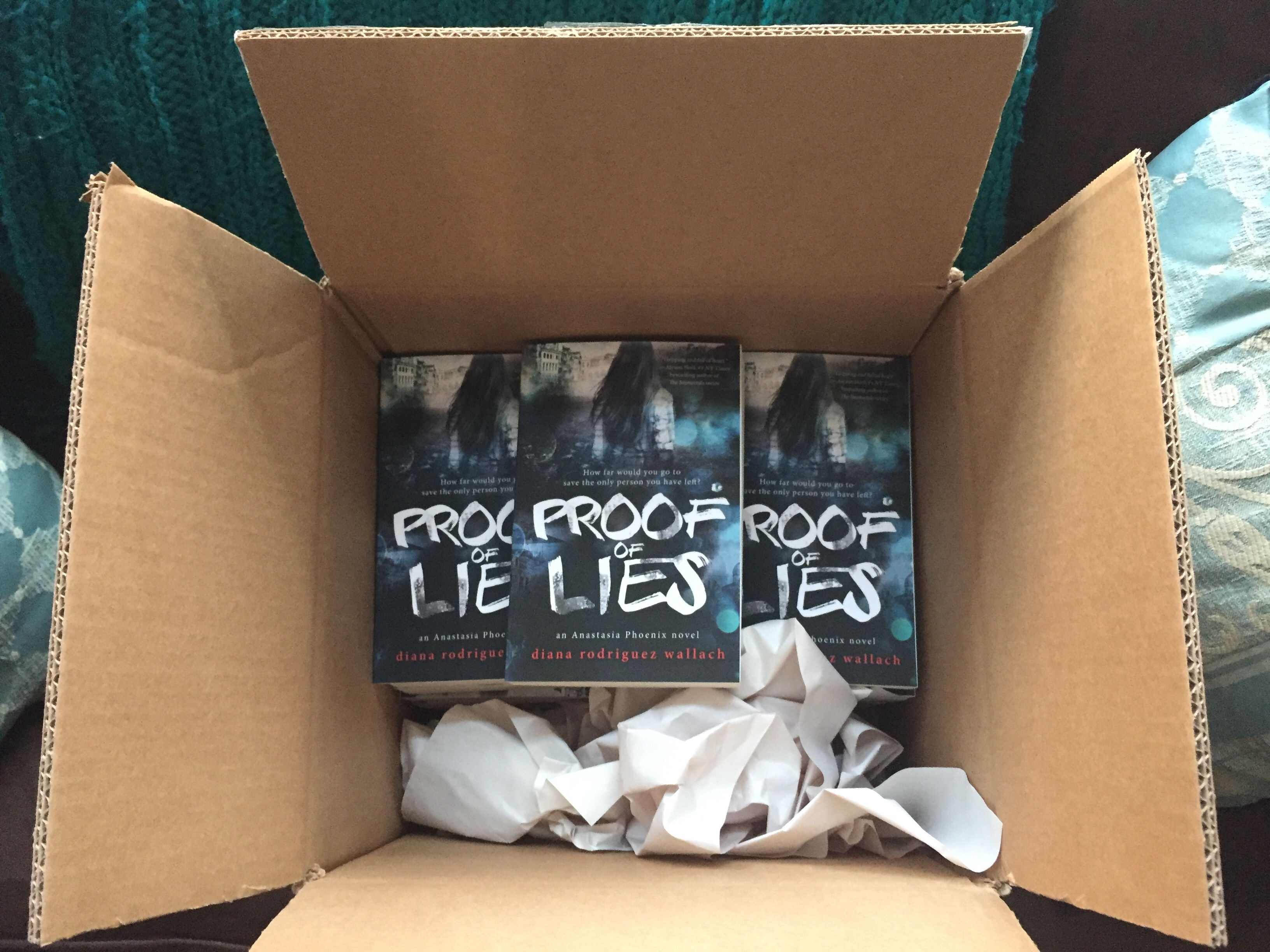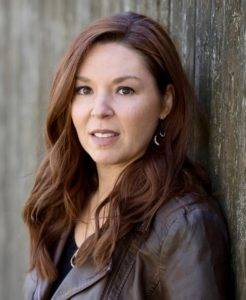In a way, I started writing Anastasia Phoenix when I was in high school. I can still mentally picture the exact moment that ultimately led me down the winding path to PROOF OF LIES, and it occurred at an Adams Mark Hotel.
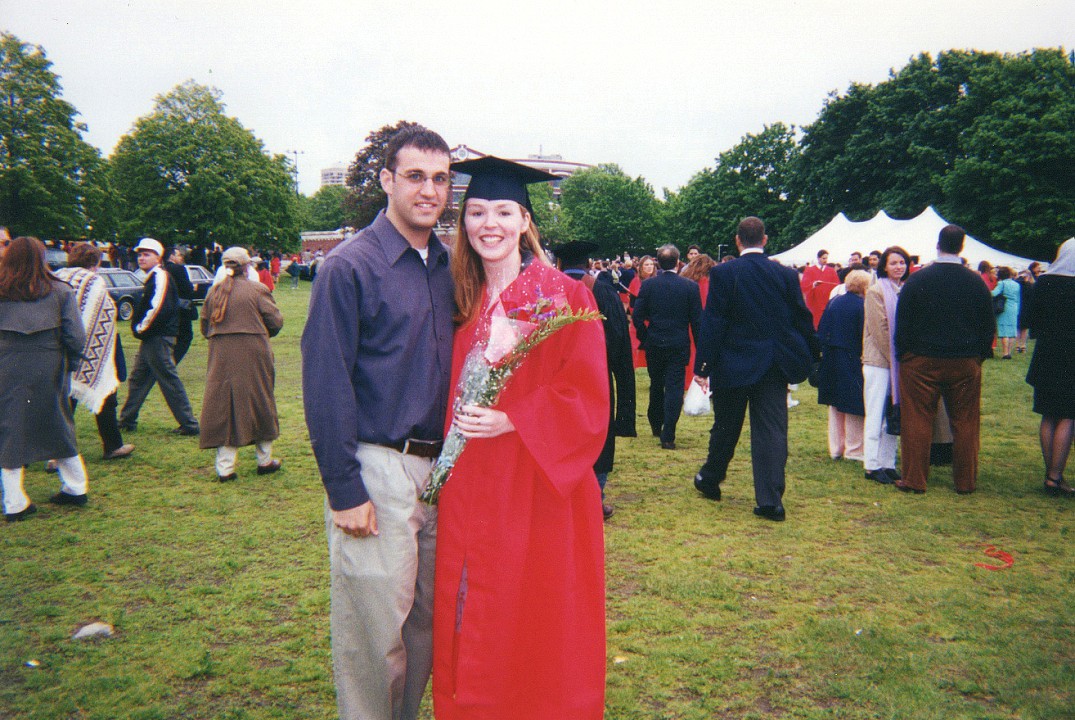
I was a high school junior attending a college fair at the now defunct hotel on City Line Avenue in Philadelphia (it has since been turned into a Target). I was interested in attending Boston University, so I listened to a few keynotes given by students who were enrolled in the College of Communication (the program to which I would apply). One student talked about the knowledge depth of his professors—how he was learning journalism from Pulitzer-prize winning reporters from the Boston Globe, The Washington Post and The NY Times. Then he spoke about a very unusual professor, one who was a former communist spy for Czechoslovakia during the Cold War and who now taught budding journalists how to tell if they were being fed false information. Not only was I hooked by the story and utterly impressed by the faculty, but for some reason the tale of the rogue spy stuck with me long after I left Conference Room B that day.
By the time I entered the College of Communication at BU, the spy-turned-journalism professor had since retired. I never had the pleasure of taking his course. However, years later when I decided to attempt an international thriller packed with super spies, that story came back to me as if it had always been waiting.
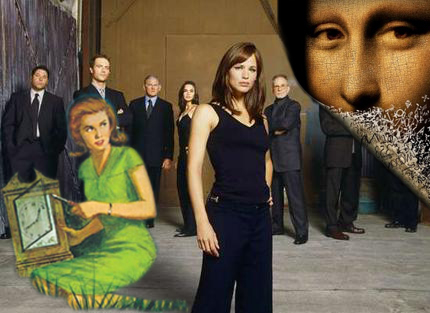
I pictured Anastasia Phoenix as Nancy Drew meets Buffy Summers in the world of Alias mixed with The Da Vinci Code. She’s a kick-butt heroine with a dry sense of humor, who can deliver one liners in four languages, as she travels the world unraveling conspiracies and searching for answers about her family. Of course, her family is linked to espionage, but I didn’t want them to be a part of the CIA, MI6, Mossad, the FSB, or any other government entity. (Can you tell I watch a lot of spy dramas?) I wanted this world focused on a unique specialty that offered me more creative freedom.
This was when I remembered the spy from BU.
His name was Lawrence Martin-Bittman (formerly Ladislav Bittman). And to this day, I believe he was, undoubtedly, the most interesting man in the world (Sorry, Dos Equis). Bittman was the Deputy Commander of Disinformation for Czechoslovakia during the Cold War until he was forced to defect to the United States to avoid assassination after the Soviet invasion of his country in 1968. He penned several books on disinformation, taught students how to avoid reporting on black propaganda (a hot topic in this era of “fake news”), and went on to paint watercolors in a studio in Rockport, MA.
I met with Bittman in his home in Massachusetts, and we discussed my ideas for the book; I inquired about everything from potential names for my fictitious criminal organizations to his opinion on the Russian mafia today. It was a fascinating conversation that led to many of the espionage elements in PROOF OF LIES, as well as the name of the CIA agent that appears at the end of the novel, Martin Bittman. I sent him a signed copy of PROOF OF LIES when it published, and I dedicated the third book in the series, END OF THE LIE, to him. In late 2018, he passed away.
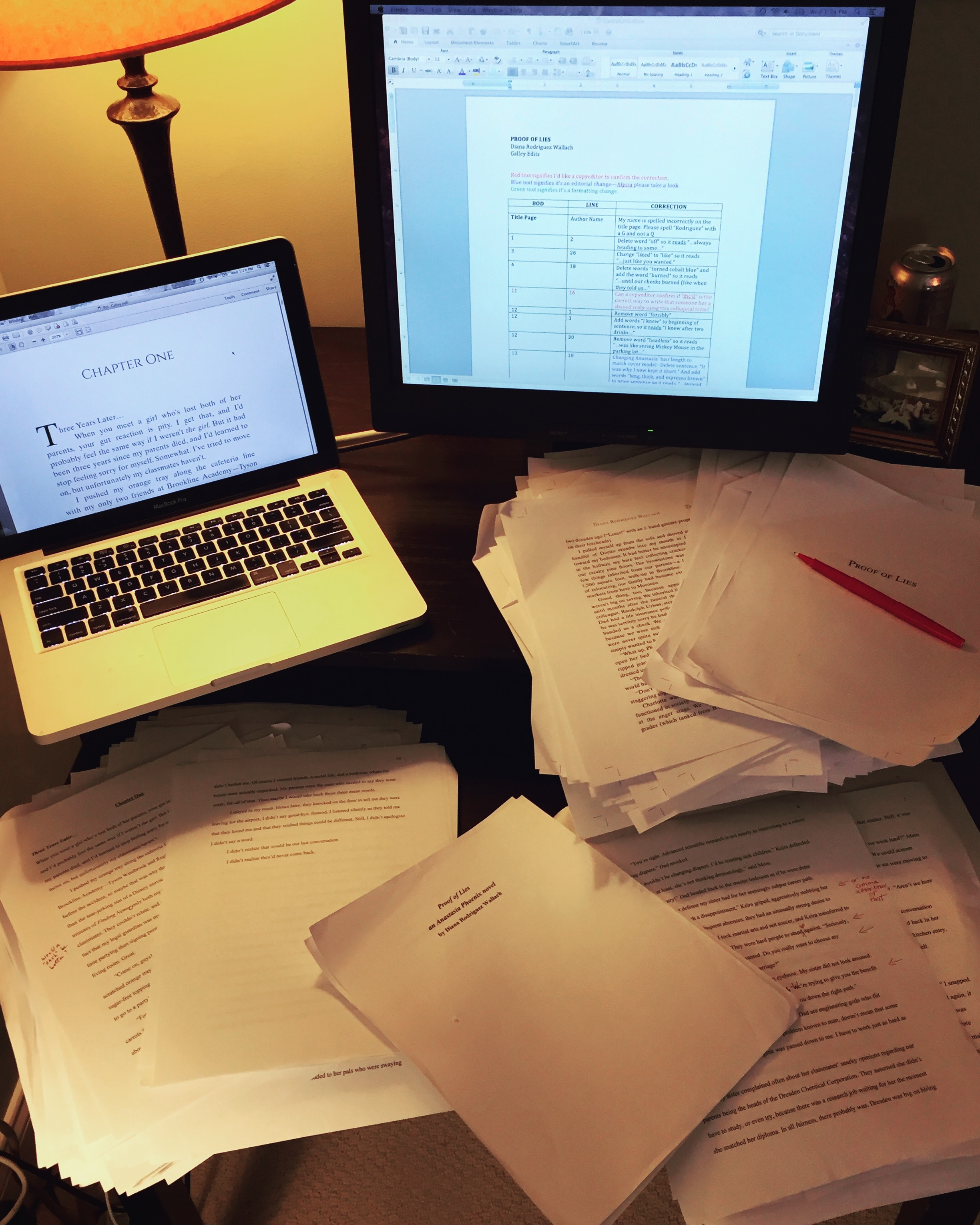
And while I always knew the mystery I wanted to tell through Anastasia’s eyes, the manuscript I needed to write eluded me for years. The words you now see behind the gorgeous cover of my novel represent seven years of writing, editing, and rejection. This book has a long history, with more than one literary agent and several disappointing acquisition meetings. I’ve rewritten the first 100 pages more times than I care to remember: moving Anastasia’s love interest from his first appearance in the middle of the novel to his debut now in Chapter 1; adding a prologue to introduce Anastasia’s parents to the reader; cutting clues that felt like she was on a wild goose chase; adding more emotional depth to her loss and teenage interactions; and even changing life-and-death circumstances for a few secondary characters. But despite these drastic changes, Anastasia Phoenix remains the same person. And I mean that almost literally—Anastasia is a person. I’ve spent the past nine years with her (if you count the years since the book officially sold), and she and I hang out daily–how many people in your life can you say that about? While I’ve never been an author who believes in muses or thinks that a story is “channeled” through me (seriously, I wrote an essay about it here), I do oddly believe that Anastasia Phoenix and I have been on this journey together. We even have a theme song:
I’m glad I didn’t give up on her. I’m glad I’m surrounded by people who didn’t tell me I was crazy when I attempted to rewrite this book for the millionth time. And I’m so beyond thrilled I now get to hold this book in my hands. You can even watch the exact moment I got THE CALL that this was actually happening. Anastasia is real now, and she’s out in the world.
